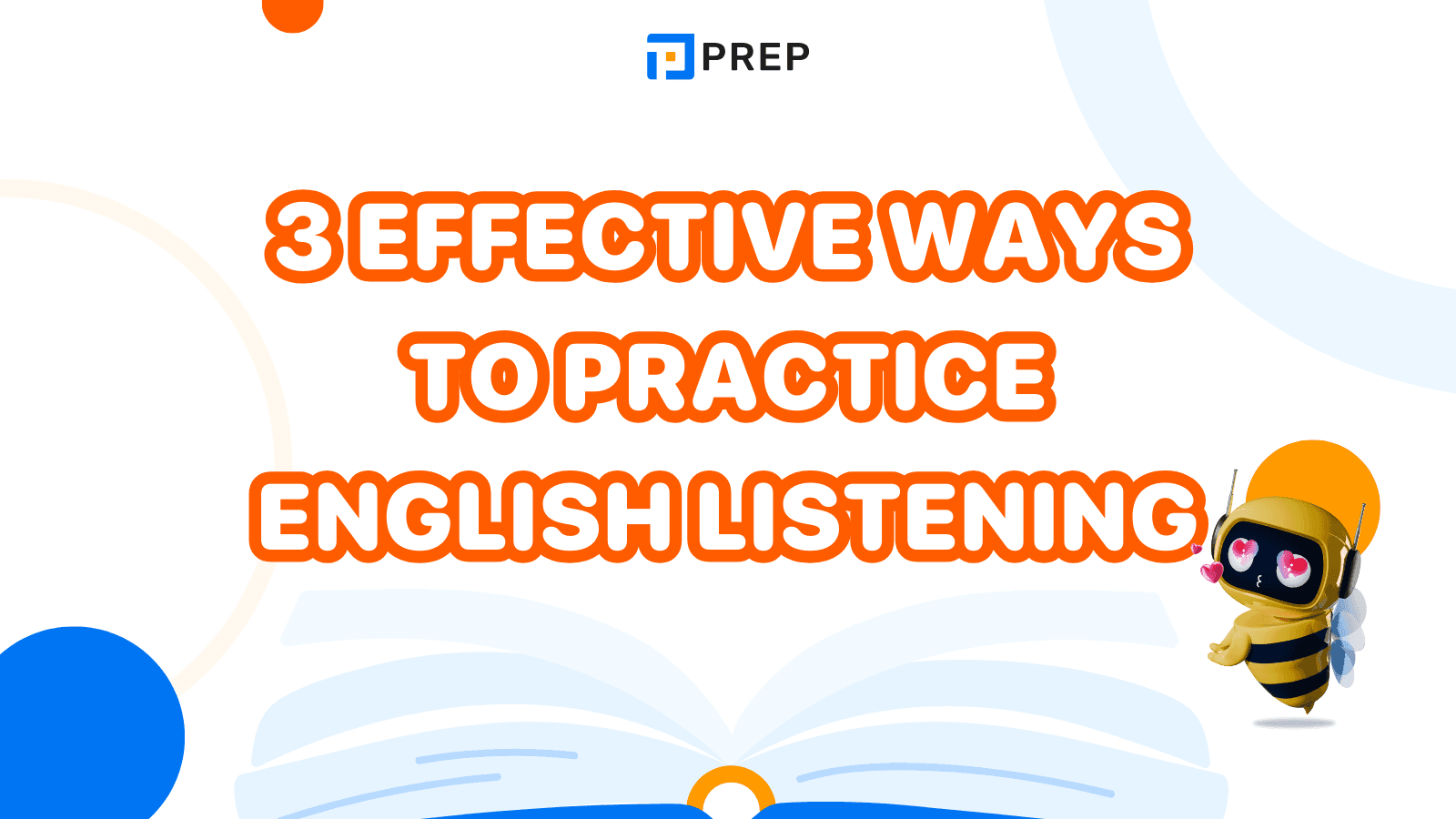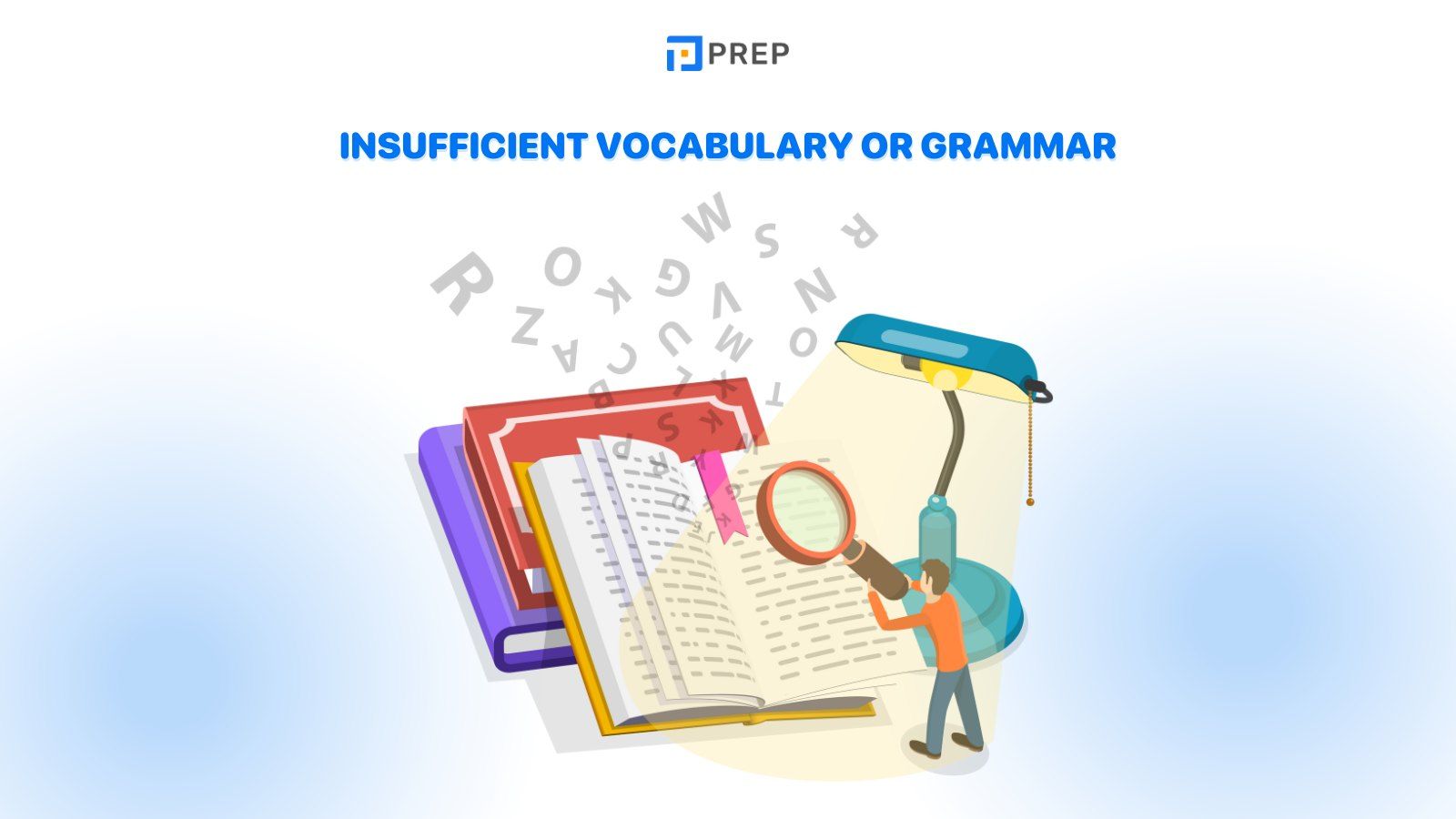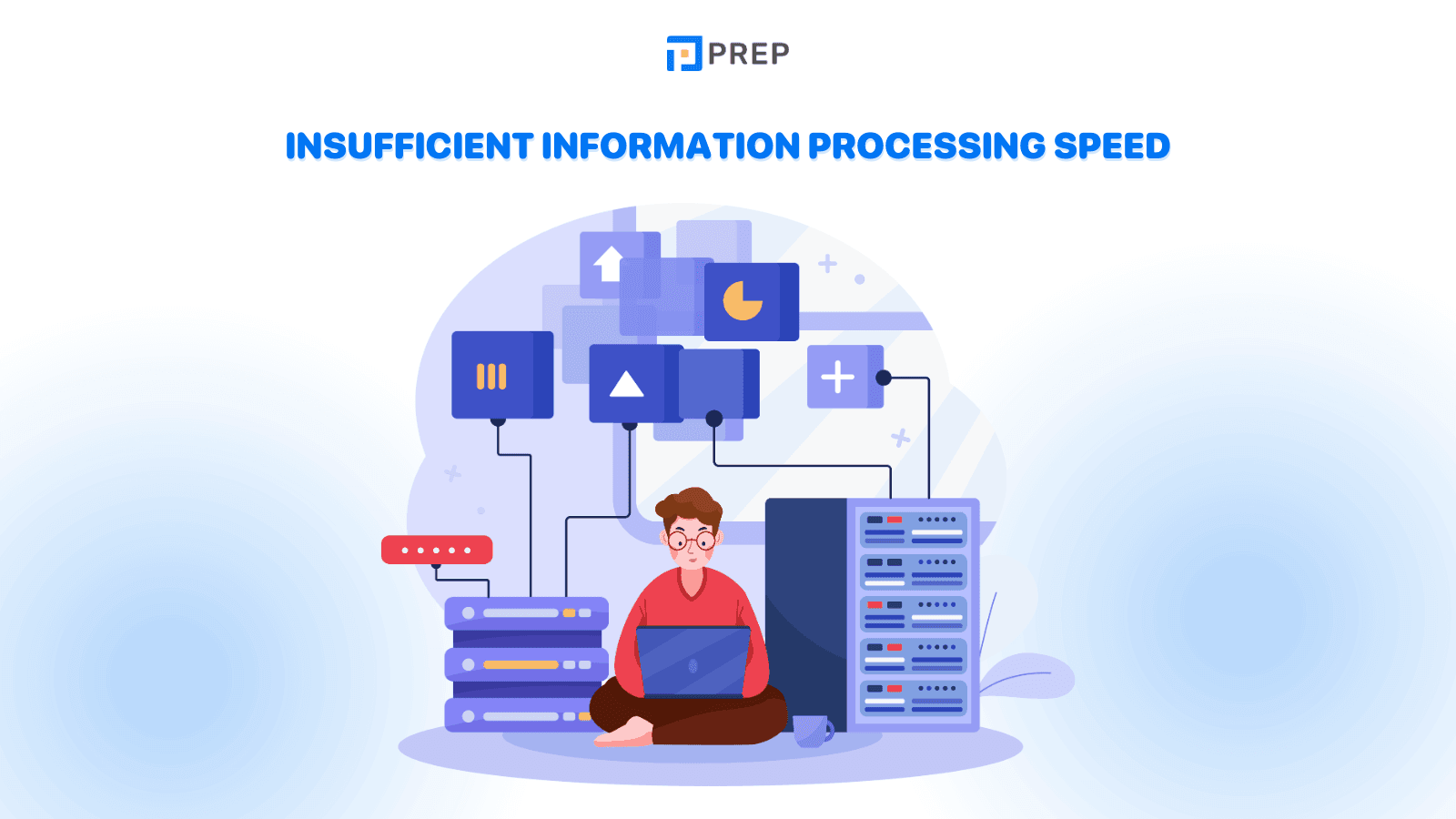3 effective ways to practice English listening at home
Do you find yourself struggling to understand anything while practicing listening? Have you spent hours listening to English without seeing any improvement in your scores? If so, the issue likely lies in ineffective listening techniques. So, how can you practice English listening more effectively? In this article, PREP will introduce the most effective methods to enhance your listening skills and help you boost your scores quickly.

I. Understanding Why You Struggle to Hear English Clearly
1. Incorrect pronunciation
One of the main reasons for difficulty in listening comprehension is inaccurate pronunciation. You may recognize individual words or certain phrases but still struggle to understand the full message. This often happens because you are unfamiliar with the correct pronunciation, making it harder to recognize words in natural speech.

2. Insufficient vocabulary or grammar
Another common issue is insufficient vocabulary or grammar knowledge. If you encounter a few unfamiliar words, you can often infer their meanings from context. However, if 30–40% of the words in a sentence are unfamiliar, understanding the overall message becomes nearly impossible. Expanding your vocabulary and reinforcing grammar knowledge are essential for improving listening comprehension.

3. Insufficient information processing speed
Another reason for struggling with English listening is difficulty in processing information quickly. This is not a problem with your hearing but rather with how fast your brain interprets what you hear. If you cannot process words quickly enough, the conversation moves on before you have fully understood the previous part, making it harder to follow.

II. How to practice English listening effectively
Struggling to figure out how to improve listening skills in English? Here are three practical and effective techniques to enhance your listening skills. These simple strategies can help you overcome difficulties and improve comprehension more efficiently.
1. Practice accurate pronunciation
One of the best ways to practice English listening is to refine your pronunciation. Follow these steps to develop more accurate pronunciation:
-
Use transcripts: Listen to an audio recording while reading the transcript. Identify words you struggle to hear and mark them.
-
Check pronunciation: Look up each unclear word in a dictionary, listen to the correct pronunciation, and mimic it. Pay close attention to word stress and final sounds.
-
Repetition: Repeat each difficult word multiple times—even up to 1,000 times—to train your mouth muscles. The more accurately you pronounce a word, the better you will recognize it in speech.
2. Strengthen Vocabulary and Grammar for Better Listening
Another essential strategy to practice English listening is expanding your vocabulary and mastering grammar. To achieve this, carefully study the transcript to understand unfamiliar words and structures. If you come across any grammar points you do not fully grasp, take the time to research them for a deeper understanding.
For vocabulary development, aim to learn all the words in the listening material, except for highly specialized terms, which are more common in Section 4 of the IELTS Listening test. Ideally, you should recognize 100% of the vocabulary used in the questions. When encountering new words, use a dictionary and maintain a dedicated vocabulary notebook for review.
To reinforce memorization, review each word at the following intervals:
-
After 1 hour
-
After 1 day
-
After 3 days
-
After 1 week
-
After 1 month
If you forget a word at any stage, restart the process from the first review session. To effectively practice English listening requires consistency and effort, but with dedication, you can significantly improve your skills and increase your chances of success.
3. Cultivate the Habit of Quick Comprehension
The final key to practice English listening is developing the ability to process information quickly. Here are some effective strategies:
-
Use context clues – Paying close attention to the wording of questions can help you predict and understand the conversation more effectively.
-
Adjust the playback speed – If the English listening practice audio feels too fast, you can slow it down to 0.7x or 0.8x using specialized software. This slight reduction in speed provides extra processing time without distorting speech.
-
Commit to active listening – If you struggle to understand a passage, listen to it repeatedly until you grasp the content. Treat it as an essential learning experience rather than passive entertainment like music or movies. While this may feel challenging at first, consistent effort will yield noticeable results in just one to three months.
To maximize progress, aim to daily practice English listening, ranging from 30 minutes to several hours, depending on your goals. With persistence and dedication, you’ll gradually understand spoken English more naturally and achieve a higher IELTS listening score.
III. Conclusion
By applying these effective strategies to practice English listening, you can significantly enhance your comprehension skills and perform well on English listening tests. Consistency and dedication are key to mastering this skill. Stay committed to your learning process, and success will follow. Best of luck with your IELTS preparation—may you achieve the high band score you aim for!

Hi I'm Chloe, and I am currently serving as an Product Content Administrator at Prep Education. With over five years of experience in independent online IELTS study and exam preparation, I am confident in my ability to support learners in achieving their highest possible scores.
Comment
Premium content
View allPersonalized roadmap
Most read












